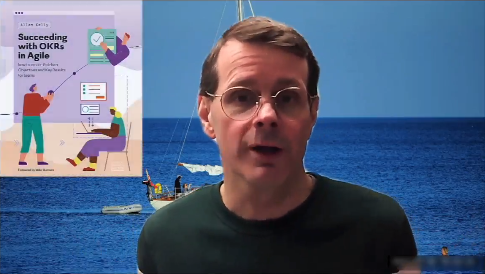A fantastic introduction to the world of OKRs!
We were thrilled to have Allan Kelly host a session about using OKRs in an Agile context for our second Agile Kitchen. Allan is a reference in the Agile field and wrote numerous books about Agile Software Development, Product Ownership, Digital Business and many more. He recently wrote about using OKRs in Agile, and that last book provided the content of this Agile Kitchen session!

The combination of OKRs with Agile seems to be a perfect match. We embrace the unpredictability of the journey and focus on the outcome. We refrain from predicting all future steps but rather navigate towards a shared objective.
OKRs are a way to craft these shared objectives, including continuously evaluating the progress. When used correctly, OKRs can represent a space for autonomy for teams, allowing them to improve their self-organisation skills and strengthen the links between the teams and the organisation’s overall mission.
But, just as any other technique, OKRs can also be used wrongfully. OKRs require a fundamental shift in how we look at managing a company. Applied to a classical hierarchical management structure, OKRs will typically be seen as a ‘Management by Objective’ toolset, resulting in top-down cascading OKRs. This improper use of OKRs implements a classical ‘Command & Control’ structure. OKRs are meant to be a way for all employees in a company to look at shared objectives and adapt their work in function of the outcome of these shared objectives.

So how far should we go with these OKRs? Well… how much of the work you do should be in function of your company objectives? Ideally? Probably everything! Using OKRs to drive all the work in an organisation is the ultimate goal. The road to this perfect picture isn’t easy, but the learning is in the journey, so take it step-by-step and take your time.
If you are interested in OKRs and want to learn how to use them in your Agile context, you might be interested in the online training about Implementing OKRs by Allan Kelly on February 24. It is a one-day training in which Allan guides you through the basics of OKRs and how to use them in your teams and organisation successfully.


